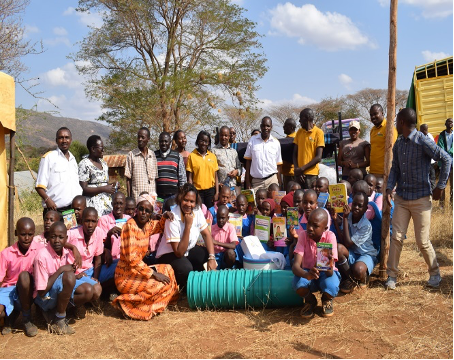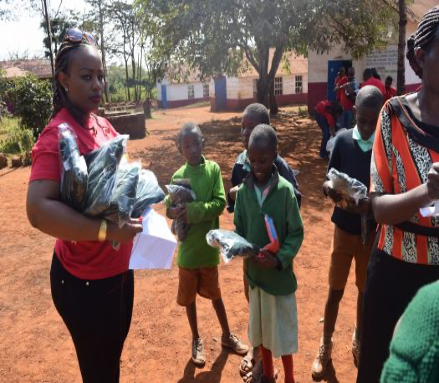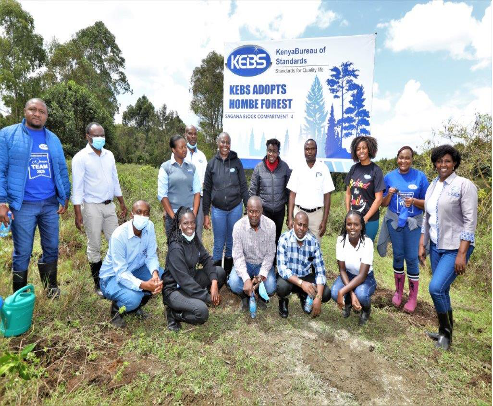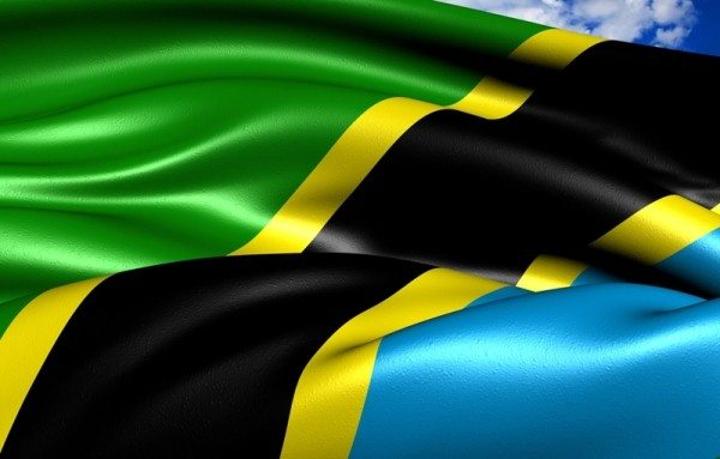Recently, the concept of Corporate Social Responsibility (CSR) has gained recognition and importance in both business and political settings although most see CSR in terms of philanthropy. CSR initiatives are growing in Africa, opening up opportunities for development.
CSR represents a twofold opportunity for Africa. It can encourage inclusive and sustainable development while also improving companies’ performance and image. This is a win-win situation for Africa. The development of CSR on a large scale across Africa will require the involvement of all actors to play in support of building a public and private sector coalition to promote CSR.
CSR refers to a company’s contribution to the challenges of sustainable development and its responsibility with respect to the environmental and social (E&S) impacts of its operations. In developing countries, conflict, lack of basic education skills, health threats, and unemployment are all challenges that face African countries and the youth in particular. In the next decade, the mounting impacts of climate change can be added to this list.
 CSR, which is now becoming an important part of corporate expansion strategies, is built around three major pillars: environmental, social, and economic. This policy, which aims at more sustainable development, also integrates the duty of companies towards their stakeholders, in particular employees and customers.
CSR, which is now becoming an important part of corporate expansion strategies, is built around three major pillars: environmental, social, and economic. This policy, which aims at more sustainable development, also integrates the duty of companies towards their stakeholders, in particular employees and customers.
The social and economic development of poor and rural communities is a universal priority. It is a central theme that dominates international trade discussions, drives government priorities, and ultimately influences the long-term prosperity of a nation. Against the backdrop of civil wars on the African continent, political instability in the Middle East, and the fall-out of the economic boom in South Asia, youth unemployment threatens to keep youth, as a global sector in a cycle of poverty.
One initiative that has become prominent is Corporate Social Responsibility (CSR).
Companies are well placed to make a considerable difference to those living in contexts of poverty and exclusion. While a degree of support for purely well-oriented approaches will continue to be necessary, companies are potentially strong contributors to sustainable initiatives within the social development landscape, particularly in supporting livelihood strategies for those excluded from the formal economy.
 Businesses that ignore corporate social responsibility run a risk to their bottom line and their brand. Having a bad reputation socially and environmentally can create serious effects on the overall profitability and success of a company. As nowadays consumers want to spend their money on products that they believe in and engage with companies that follow ethical practices that meet their own beliefs.
Businesses that ignore corporate social responsibility run a risk to their bottom line and their brand. Having a bad reputation socially and environmentally can create serious effects on the overall profitability and success of a company. As nowadays consumers want to spend their money on products that they believe in and engage with companies that follow ethical practices that meet their own beliefs.
For environmentalists, the inclusion of CSR in the growth of companies should make a significant contribution to achieving the 17 Sustainable Development Goals (SDGs) set by the United Nations (UN) for 2030. African countries, which place the SDGs at the heart of their development policies, are faced with rapid urbanization, internal and external migration, an extroverted economy, and the effects of climate change.
“Achieving the MDGs in Africa requires innovative planning approaches and effective global coordination, as envisaged in Agenda 2063, which structures all the actions that should lead Africa towards sustainable emergence,” explain Abdoulaye Sene (Administrative Secretary of the Dakar 2022 Water Forum).
SOME CSR PROJECTS IN AFRICA
 Toshiba Africa has a strong commitment to CSR in Africa for this reason they are involved with many projects across the continent. To express the essence of their corporate philosophy, Toshiba Group’s basic commitment is “Committed to people, committed to the Future. TOSHIBA.”
Toshiba Africa has a strong commitment to CSR in Africa for this reason they are involved with many projects across the continent. To express the essence of their corporate philosophy, Toshiba Group’s basic commitment is “Committed to people, committed to the Future. TOSHIBA.”
Toshiba Africa’s CSR partner the Langa Education Assistance Program (LEAP) runs independent schools that provide fee-free education for some of South Africa’s most marginalized communities. It’s a good fit for Toshiba, a strong proponent of science and math education and Toshiba Africa has worked with LEAP-3 for residents of Alexandra since 2017. Toshiba Africa has donated to LEAP for their school facility, books for their library and many more.
 There is save the children, Tanzania where Toshiba Group supports this early childhood development project in the Shinyanga area of Tanzania since 2014, the Toshiba Group has donated a total of 10 million Yen to the project which has been used to build and operate ten community childcare facilities in Tanzania. These community childcare facilities foster caring, educational environments that support the upbringing of 1000 children and provide meals that help improve nutritional standards.
There is save the children, Tanzania where Toshiba Group supports this early childhood development project in the Shinyanga area of Tanzania since 2014, the Toshiba Group has donated a total of 10 million Yen to the project which has been used to build and operate ten community childcare facilities in Tanzania. These community childcare facilities foster caring, educational environments that support the upbringing of 1000 children and provide meals that help improve nutritional standards.
BMW South Africa supported in the fight against COVID-19 as they provided 9 hospitals and 4 clinics, including upgrades to emergency facilities, 3 emergency support cars, PPEs, an ambulance, 750 beds and additional screening facilities. They also loaned 17 BMW vehicles locally built, to South African Red Cross Society to help it reach marginalized and poor communities that have been badly impacted by the COVID-19 pandemic.
144 schools have benefitted from support from BMW SA, Ntsha- Peu Primary near Shoshanguve received an R4 million investment and world-class upgrades. As part of the programme, the school has had a new computer lab installed that can accommodate 80 learners at a time, and, in partnership with the Gauteng Department of Education, has supplied with always-on internet.
The core of Goil Ghana CSR business has been in water and sanitation. Goil has thus continued with its portable water supply project by delivering mechanized boreholes to several deprived communities spread across the length and breadth of the country. Over the last three years for example. Goil has been providing a minimum of 10 boreholes every year to deprived communities.
The Kenya Airways corporate social responsibility program aims at delivering sustainable educational programs to support future generations. Some accomplishments related to the education project include putting up school infrastructures such as a dormitory at Esageri School for the Deaf in Baringo county, and a science laboratory at Songeni Mixed Secondary school in Makueni county. Two classrooms at ongora Primary School in Rongo County, and a dining hall at Namunyak Girls Secondary School in Narok county.
As a responsible corporate citizen, NETFUND prides itself on contributing towards positive transformation of life in the areas of the environmental, social and economic well-being of the society in which it operates. NETFUND has embraced the national tree planting campaign with the theme “Panda Miti Penda Kenya.” This is part of our contribution to ensuring improved forest cover and biodiversity in their areas of work. In Bomet County, NETFUND worked with county officials to plant 5,000 tree seedlings in the Chepalungu forest, an indigenous forest and complex ecosystem that need efficient management.
 NETFUND also works with NEMA and other organizations to lead and sustain environmental clean-ups in the major cities of Kenya and promote the use of alternatives to plastics.
NETFUND also works with NEMA and other organizations to lead and sustain environmental clean-ups in the major cities of Kenya and promote the use of alternatives to plastics.
Africa’s economic performance and trends, combined with its demographic vitality, point towards a brighter future for CSR on the continent. Socially responsible investment models are beginning to spread widely in Africa, thanks to initiatives by major companies in the mining, infrastructure, agro-industry and ecotourism sectors. These practices often involve high-value-added subsidiary businesses which have a strong ripple effect on the local economy.
The higher visibility of these initiatives could help to trigger a wider awareness of CSR in Africa and promote its development. Yet CSR cannot become deeply rooted unless businesses and local Organisation can individually and collectively develop their own tools for disseminating their practices, based on the founding principles and realities of their societies.


